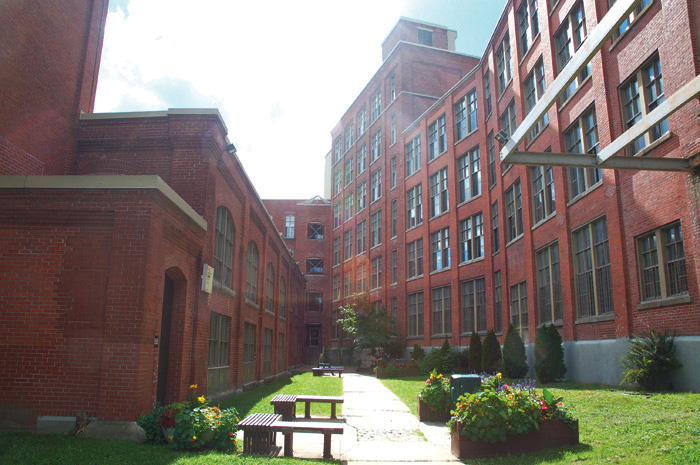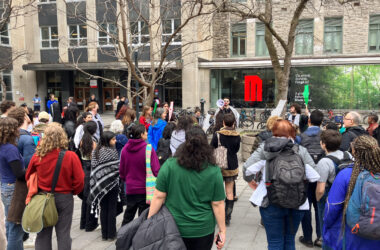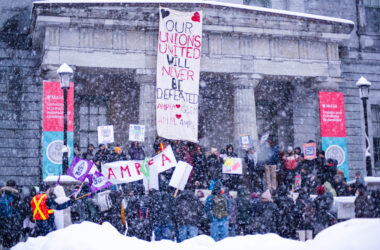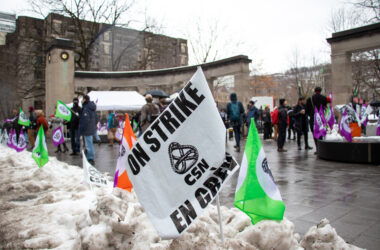In response to increasing COVID-19 cases in Montreal, the McGill administration updated the Residence Handbook, eradicating the three-strike policy for breaking COVID-19 measures. The new policy, implemented on Jan. 13, maintains that a written warning or a disciplinary meeting will follow a first offence, with the possibility of up to a 10 day exclusion from residence, or even a complete lease termination. On Jan. 21, as a result of noncompliance with COVID-19 restrictions, between 15 and 20 students were notified of their exclusion from residence for seven days, and had their student IDs confiscated, preventing them from using their meal plans and accessing McGill facilities.
Noa Crébassa, a U2 Arts student in Solin Hall, said that she was not surprised about the change in policy.
“I would say the [new] one-strike [policy] makes sense because of all the violations taking place in New [Residence] and Royal Victoria College last semester,” Crébassa said.
Tom*, a U0 Arts student living in Campus 1, expressed his frustrations with the lack of communication between the university and its students.
“[McGill] is not communicating what the rules are,” Tom* said. “Students received emails saying they had to leave by 10 a.m. the following day, giving them less than 24 hours to find places to stay.”
Some of the students who were excluded from their residences had nowhere to go and said that the university had sent them a list of hotel suggestions, but people under the age of 18 are unable to book rooms themselves.
“Airbnb check-ins are at around 3 or 4 p.m., so students had nowhere to go [at 10 a.m.],” Tom said. “[Students] weren’t allowed to use their meal plans either. They were pretty much stranded until they could find a hotel or an Airbnb.”
Vikram Nathan, a U0 Science and floor 14 representative of New Residence Hall council, said that the situation sparked anger among many students.
“In one severe case, a student had to spend the night unhoused,” Nathan said. “She spent it at a subway station. Students have to pay out of pocket for their housing [….] This is all just disastrous from a mental health standpoint.”
Tom described students’ frustration due to the lack of communication from the university.
“I understand that students are breaking COVID guidelines, which I know is not a good thing, but the way that McGill is handling all of this is not right, especially in regards to evicting students with no prior strikes,” Tom said.
Nathan pointed out the lack of support that McGill is providing students in residences.
“This all feels very unsympathetic,” Nathan said. “There’s a massive disconnect between what [McGill] thought they could achieve by putting us all in [residence] and what is actually happening,”
McGill Media Relations Officer Frédérique Mazerolle said that the university has always communicated its rules to the students.
“The safety of our students and staff is our foremost guiding principle,” Mazerolle said. “McGill continues to work hard to create a safe and welcoming experience for all students who have chosen to join us in residence.”
Mazerolle disagreed that students were not adequately informed of the changes in regulations.
“The university has been very clear that students living in residences are expected to abide by these new rules and regulations,” Mazerolle said. “A number of students have faced short-term measures for non-compliance to public health authorities and McGill’s COVID-19 regulations in residences.”
*Names have been changed to protect the privacy of individuals.
A previous version of this article quoted Crébassa saying that there was no warning before the implementation of the new policy. In fact, she was not surprised about the change in the disciplinary policy. The quote has been updated. The Tribune regrets this error.









